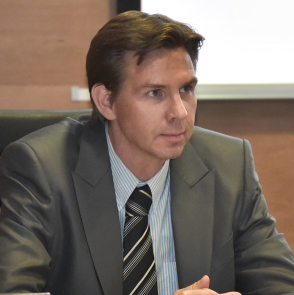Futures of using nature in rural and marine contexts in Europe

The project focuses geographically on Europe and looks toward 2050, on regimes of stewardship of land and sea and address the role of ownership, access and use rights in rural areas (cities excluded), multiple uses of spaces (both land and sea), biodiversity, food (both aquaculture, fisheries and agriculture), energy (use of renewables), raw materials (mining etc.), carbon removal and storage, adaptation to climate change. While the challenges are global, they are addressed especially from the European research and innovation policy perspective.
The immense social and technological evolution of the Anthropocene continues transforming the Earth’s surface and its dynamics through extensive (mis-)use of its resources, both on the land and in the sea. This policy brief develops scenarios on rural and marine areas in Europe in 2050 and subsequent implications to today’s R&I policy in Europe. Each scenario considers i) Economy and technology, ii) Demographics, lifestyles and values, iii) Governance and iv) Environment.
In Scenario A, European Civic Ecovillages pursue self-sufficiency and contribute to establishing a cooperative, locally oriented, caring economy restoring the ecosystem carrying capacities in land and sea. In Scenario B on Sustainable High-tech Europe, European businesses enjoy global leadership in regenerative and multi-functional high-tech solutions for energy, aquaculture and agriculture. In Scenario C on the United States of Europe, centrally planned Europe is divided between intensive use of land and sea and large conservation areas. Scenario D on European Permacrisis portrays Europe in a post-growth and politically scattered context that leads to low rates of innovation and fragmented use of land and sea.
None of the scenarios features a decisive solution to the global climate and biodiversity crises. Scenario A forcefully targets the resolution of the biodiversity crisis in Europe, by aligning human practices with nature, but provides little support to global climate and biodiversity crises. Scenario B proactively tackles the biodiversity crisis both in Europe and internationally but struggles with the fragmentation of efforts and with scaling up good practices and wider impact to curb the crisis. Scenarios C and D with intensive use of nature reduce biodiversity. Thanks to European-wide coordination Scenario C can protect vast areas with positive impacts to biodiversity, whereas Scenario D also struggles with the major fragmentation of conservation efforts and its detrimental impact on biodiversity. Such challenges illustrate the importance of balanced approaches in developing both local and global solutions to climate and biodiversity crises.
All scenarios depict a future of rural and marine areas in the context of extreme weather events and ecological crises, all be it with different intensities. Social developments, instead, range from major social confrontations to more collaborative and inclusive practices. Their policy implications include, among others, the need to address major risks of patchy land use that hamper the sufficient size of ecosystems and diminish resilience. The scenarios also touch upon integrated spatial planning of urban, rural and marine areas, and how the effective use of spaces can benefit from the further extension of user rights. Future research could explore if and how land ownership models in some rural areas could be replaced or complemented with public ownership and user rights. Furthermore, policy implications include a need for balancing sustainability with food affordability and security in different modalities of agriculture and aquaculture. The challenges of climate and biodiversity crises addressed by the scenarios suggest that balanced approaches are needed in developing both local and global solutions.
This brief is the result of one of eight Deep Dive Foresight Studies in the project ‘European R&I Foresight and Public Engagement for Horizon Europe’ conducted by the Foresight on Demand’ consortium for the European Commission. During the spring of 2023, an expert team identified factors of change and organised two scenario and one policy implications workshops also engaging experts from academia, business and public administration around Europe. The process was also supported by discussions in the Horizon Europe Foresight Network.
19422
0
0
0
0
0
Laura Galante
0
0
0
Laura Galante
0
0
0
Laura Galante
413
0
653
0
1100
0
573
0










